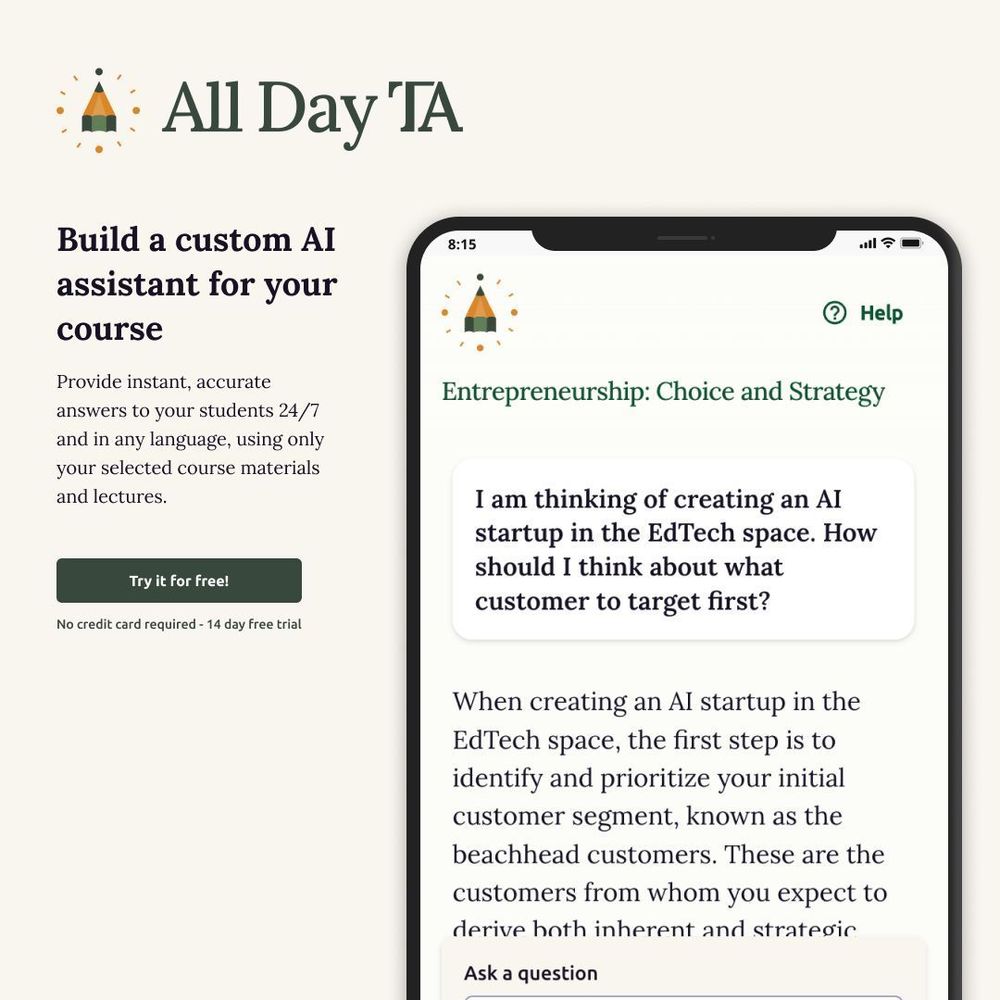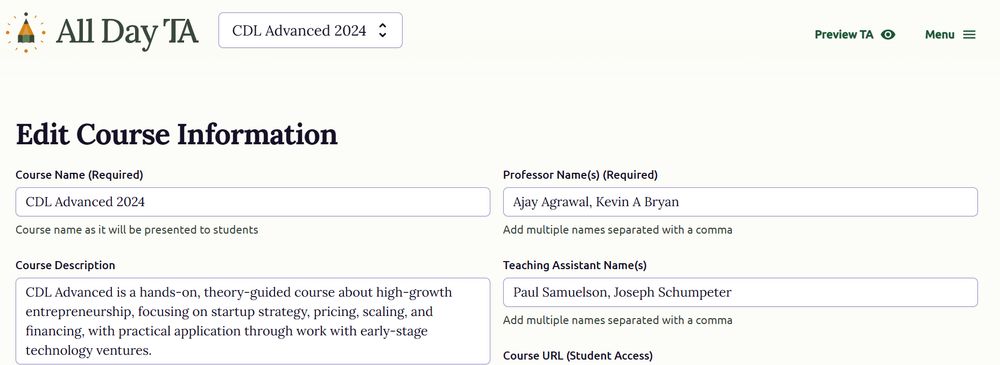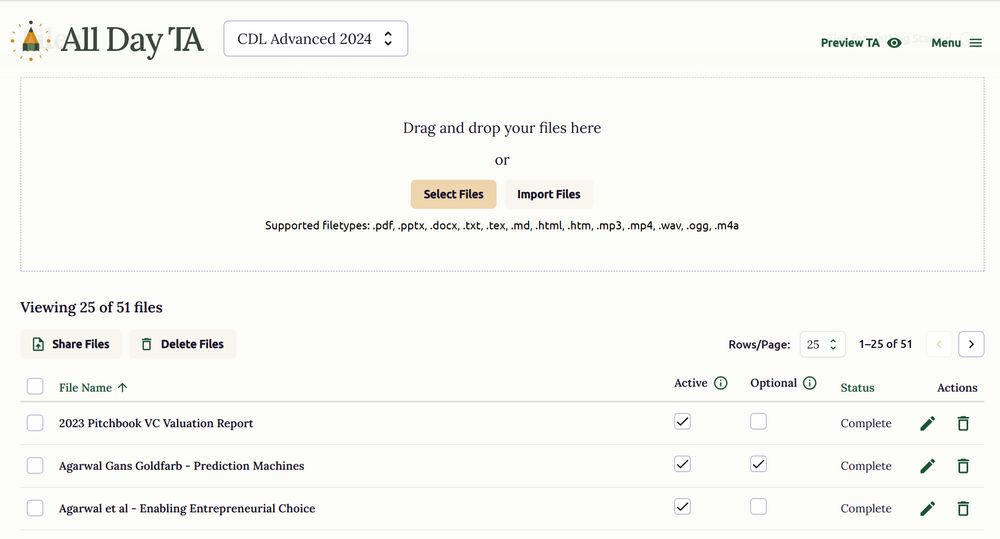bsky.app/profile/aelk...
11.07.2025 15:49 — 👍 0 🔁 0 💬 0 📌 0
John Billings
@johnhbillings.bsky.social
https://twitter.com/JohnHBillings <- over on the other app. Slowly migrating here.

@johnhbillings.bsky.social
https://twitter.com/JohnHBillings <- over on the other app. Slowly migrating here.
bsky.app/profile/aelk...
11.07.2025 15:49 — 👍 0 🔁 0 💬 0 📌 0I'm skeptical that such a model would be supported empirically, but I wouldn't be shocked if well-intentioned policy makers had some version of that model in mind (formal or not, consciously or not) when choosing to enact the subsidies.
18.06.2025 11:10 — 👍 0 🔁 0 💬 0 📌 0Third guess, I could imagine a model where the advantage of being the "top" industry has such a large prestige benefit in attracting talent and capital that it might even be economically beneficial to keep pouring money into your winner to keep it on top.
18.06.2025 11:10 — 👍 0 🔁 0 💬 1 📌 0... relatively cheap in comparison to trying to build such an industry from scratch or get back on top when fallen behind, so these subsidies have broad popular support, despite being economically inefficient.
18.06.2025 11:10 — 👍 0 🔁 0 💬 1 📌 0My second guess, and I think this is a weaker explanation, is that there is a "prestige" benefit to having the "winning team." It feels good to the people of a country to have an industry that dominates the world, subsidies from the government to maintain that dominant position are ...
18.06.2025 11:10 — 👍 0 🔁 0 💬 1 📌 0... so the marginal cost to any politician of directing subsidies to that industry are low, and the marginal benefits to that politician (from campaign contributions, alliance with influential industry, etc) are high.
For the industry, the lobbying costs are low, the return from subsidies are high.
Second, given that it's a dumb use of resources, why do countries engage in it?
My first guess would be a Public Choice Theory explanation - an already successful industry has the resources to lobby for subsidies, a developed country has a lot of subsidies they can give ...
... but surely the marginal dollar spent on Industrial Policy for an industry that has already won a) would get a better return basically anywhere else, and b) wouldn't be invested in more productivity, but passed through directly to shareholders?
Am I missing something?
... an industry that's already won?
It's already going to be on the frontier of technology, it will already have accumulated the physical and human capital it needs, it's already benefitting from attracting investment.
I haven't worked this out formally (and suspect someone else already has) ...
... market figure out which industry your country has a comparative advantage in.
The classic question of "Did South Korea achieve huge economic success because or in spite of its Industrial policy?"
But if you're already a wealthy, developed country, why would you pour resources into ...
... and so a developing country, lacking in private capital, might try to jumpstart that process.
The caveat being it's very hard to know in advance which industry is going to be a "winner," and since any industrial policy will hurt all your other industries, it might be better to just let the ...
First, this seems like a dumb use of resources.
I get the argument for Industrial Policy for a developing country trying to nurture an infant industry.
Higher-productivity industries require concentrations of skill/capital that can be hard to start up...

"In the third part of the paper, we show three new takeaways about contemporary industrial policy practice. First, industrial policy represents a significant share of policies in the GTA (44–63% of policies with identifiable goals), with prevalence rising steadily since the 2010s. Second, industrial policies, unlike other policies in our data, disproportionately target sectors where a country already holds a dominant position in export markets. No similar targeting pattern exists for non-industrial policies, indicating distinctiveness not only in declared goals(by construction) but also in implementation. Together, these results demonstrate that industrial policies are both quantitatively important and qualitatively unique. Our third takeaway is that contemporary, real-world industrial policy deviates from conventional wisdom. Although early empirical work focused on tariffs, we find that subsidies and export-oriented measures are far more common. In fact, import tariffs are not among the most-used industrial policy instruments. Furthermore, the overwhelming majority of import tariffs are not used for industrial policy reasons. Taken together, this shows that tariffs are a poor measure of industrial policy. Similarly, in contrast to its traditional emphasis in development economics, our findings suggest that industrial policy is more widely used in high-income countries relative to developing economies. Thus, contrary to much recent literature evaluating individual episodes of industrial policy, the typical industrial policy today is not used by a country behind the technology frontier and is not targeted towards an infant industry. In fact, the opposite is true: the typical industrial policy today is deployed by a high-income economy and targets a sector in which the country has a revealed"
I'm skimming it now instead of doing the writing I should be doing, but here's my initial set of thoughts and questions.
Main takeaway: Rich countries do IP by subsidizing industries they already have a comparative advantage in.
This is cool and now in my "interesting papers to read later" folder.
18.06.2025 10:45 — 👍 0 🔁 0 💬 1 📌 0everyone should read this but in particular phd students should read this to learn how to properly title graphs
16.06.2025 11:47 — 👍 34 🔁 5 💬 3 📌 0

With Google's AlphaEvolve, we have mounting evidence that LLMs can discover novel & useful ideas, especially when given access to tools and systems.
These results are impressive: given 50 open math problems, the AI rediscovered the leading approach 75% of the time & improved on it 20% of the time.

A highly relevant paper by my colleague Mauricio Ulate, and coauthors Andres Rodriguez-Clare and Jose Vasquez assessing the consequences of the recent tariffs.
U.S. real income falls by 1% by 2028, with some states having declines of more than 3%.
www.frbsf.org/wp-content/u...
Non-paywalled version:
alexwellerstein.com/publications...
Speaking on Squirrel Hill specifically:
Basically nada has been permitted or built since Summerset.
The Irish Center was the next big one - but we all saw how that turned out.
Squirrel Hill is zoned extremely exclusively. Basically impossible to build anything there these days.
I just emailed it to you.
Feel free to reach out if you have any questions!
Yes, please do! Our most recent data isn't on the public GitHub yet - I did some significant cleaning over December/January that isn't there.
22.01.2025 17:59 — 👍 1 🔁 0 💬 1 📌 0Spoons vs shovels, 1901, quoteinvestigator.com/2011/10/10/s...
14.12.2024 19:54 — 👍 1 🔁 0 💬 0 📌 1
An incident which struck me at the time as quite amusing occurred not long since on North Broad street. A steam shovel at work had attracted a large number of spectators, including two Irishmen, who, judging by their appearance, were toilers temporarily out of employment. As the big shovel at one lick scooped up a whole cartload of dirt and dumped it upon a gondola car, one of the Irishmen remarked: “What a shame, to think of them digging up dirt in that way!” “What do ye mane?” asked his companion. “Well,” said the other, “that machine is taking the bread out of the mouths of a hundred laborers who could do the work with their picks and shovels.” “Right you are, Barney,” said the other fellow. Just then a man who had been looking on and who had overheard the conversation remarked: “See here, you fellows. If that digging would give work to a hundred men with shovels and picks, why not get a thousand men and give them teaspoons with which to dig up the dirt?” The Irishmen, to their credit, saw the force of the remark and the humor of the situation and joined heartily in the laugh that followed, and one of them added: “I guess you’re right, Captain. The scoop’s the thing after all.” —Philadelphia Public Ledger.
quoteinvestigator.com/2011/10/10/s...
The spoons vs shovels story dats back to 1901.




Super excited to publicly launch "All Day TA" (http://www.alldayta.com), a product @joshgans.bsky.social and I have been working on with our team over the last year. Short version: if you teach in spring, you will want to use this! It's the future of higher education. A short thread: 1/x
13.12.2024 18:15 — 👍 288 🔁 39 💬 205 📌 188I'm not an R person, but I totally agree with this point: we're doing students a disservice by teaching them stata.
Even worse if you're teaching at a public university: using public money to create consumers for a private company.
And a link to the published version
www.aeaweb.org/full_issue.p...
Citation in case either link goes dead:
Li, S., 2024. Designing Simple Mechanisms. Journal of Economic Perspectives, 38(4), pp.175-192
Reading this paragraph made me want to read the paper (WHAT?! Second-price auctions aren't automatically awesome?) but it took me more than 5 seconds to find it.
So here is the link, both for my future self and other curious readers
arxiv.org/pdf/2403.18694
This is how science should work. 💡
14.12.2024 16:07 — 👍 59 🔁 8 💬 1 📌 0
Thank you to many who provided valuable input on my monograph on minimalist market design. Here is a much revised and expanded version. It introduces a design framework that is useful for generating cutting-edge research with strong potential for policy impact. #EconSky arxiv.org/pdf/2401.00307 1/
11.12.2024 03:20 — 👍 69 🔁 15 💬 1 📌 1
"Simply put, when immigrants come to a place looking for jobs, they also demand goods and services—thus creating jobs for native-born workers… The question has always been which effect is bigger."
@jerusalem.bsky.social and Rogé Karma brilliantly review research including mine in this podcast—>